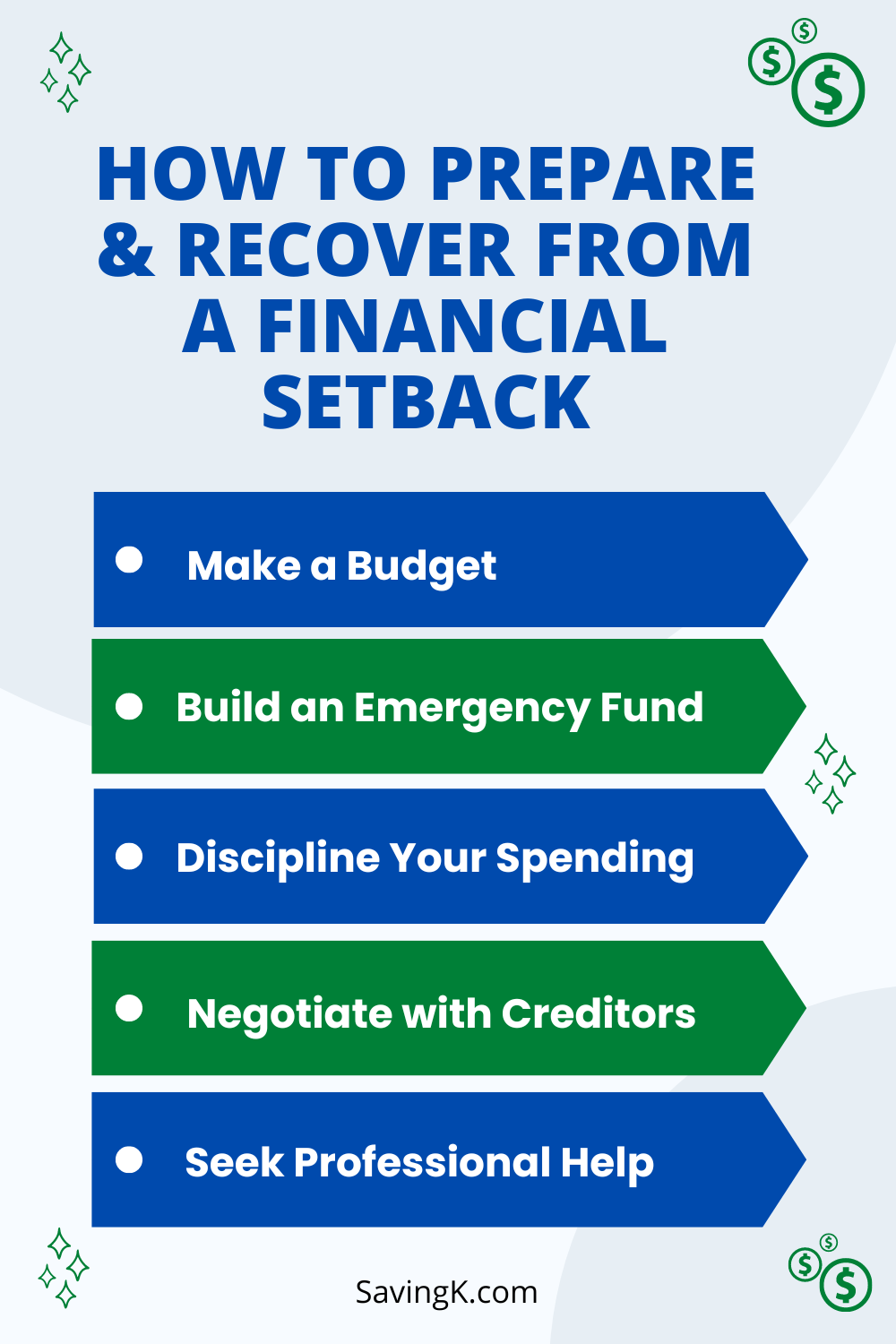
At some point in our lives, most of us will experience a financial setback. Whether it’s losing our job, an unexpected medical bill, or even just bad luck, these setbacks can put a serious dent in our finances. And while it’s impossible to predict when or how these setbacks will happen, there are some things we can do to prepare for them—and to recover from them as quickly as possible.
Contents
1. Make a Budget
The first step to preparing for a financial setback is to make a budget. This will help you keep track of your income and expenses so that you can see where your money is going—and where you can cut back if necessary. There are a number of different ways to make a budget, but one of the simplest is the 50/30/20 rule. This rule dictates that 50% of your income should go towards essentials like housing and food, 30% should go towards non-essentials like entertainment and travel, and 20% should go towards savings and debt repayment.
2. Build an Emergency Fund
The second step is to build an emergency fund. This is a fund that you set aside for unexpected expenses like car repairs or medical bills. Ideally, your emergency fund should have enough money to cover three to six months’ worth of living expenses. This may seem like a lot, but it’s important to have a cushion in case you experience a prolonged financial setback.
3. Stay Disciplined with your Spending
The third step is to stay disciplined with your spending. Even if you have a good emergency fund in place, it’s still important to be mindful of your spending in case you experience a financial setback. One way to do this is by following the 30-day rule—which dictates that you shouldn’t spend any money on non-essential items until 30 days after you’ve first considered buying them. This will help you avoid impulsive purchases and stick to only the essentials.
4. Negotiate with Creditors
The fourth step is to negotiate with creditors if you’re having trouble making ends meet. If you’re behind on your bills or facing foreclosure, reach out to your creditors and see if they’re willing to work with you. Many companies are willing to negotiate payment plans or even lower interest rates if it means getting their money back.
5. Seek Professional Help
Finally, if you’re struggling to recover from a financial setback, seek professional help from a certified credit counselor or financial planner. These professionals can help you create a budget, negotiate with creditors, and develop a plan to get back on track financially.
Conclusion
No one likes experiencing financial setbacks, but they’re an inevitable part of life. By making a budget, building an emergency fund, staying disciplined with your spending, negotiating with creditors, and seeking professional help when necessary, you can prepare for—and recover from—these setbacks as quickly as possible.





